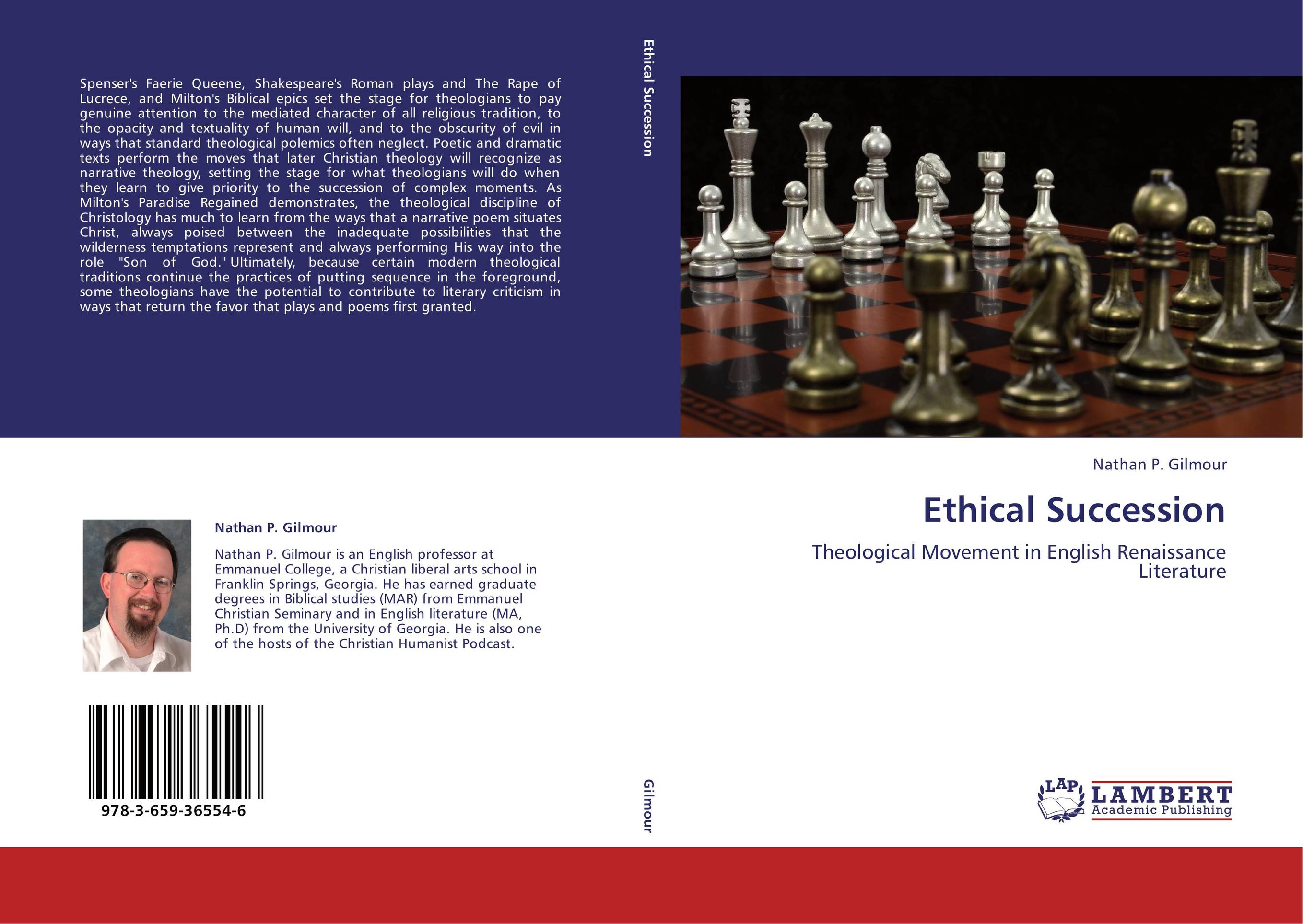| Поиск по каталогу |
|
(строгое соответствие)
|
- Профессиональная
- Научно-популярная
- Художественная
- Публицистика
- Детская
- Искусство
- Хобби, семья, дом
- Спорт
- Путеводители
- Блокноты, тетради, открытки
Ethical Succession. Theological Movement in English Renaissance Literature

В наличии
| Местонахождение: Алматы | Состояние экземпляра: новый |

Бумажная
версия
версия
Автор: Nathan P. Gilmour
ISBN: 9783659365546
Год издания: 2013
Формат книги: 60×90/16 (145×215 мм)
Количество страниц: 236
Издательство: LAP LAMBERT Academic Publishing
Цена: 48384 тг
Положить в корзину
| Способы доставки в город Алматы * комплектация (срок до отгрузки) не более 2 рабочих дней |
| Самовывоз из города Алматы (пункты самовывоза партнёра CDEK) |
| Курьерская доставка CDEK из города Москва |
| Доставка Почтой России из города Москва |
Аннотация: Spenser's Faerie Queene, Shakespeare's Roman plays and The Rape of Lucrece, and Milton's Biblical epics set the stage for theologians to pay genuine attention to the mediated character of all religious tradition, to the opacity and textuality of human will, and to the obscurity of evil in ways that standard theological polemics often neglect. Poetic and dramatic texts perform the moves that later Christian theology will recognize as narrative theology, setting the stage for what theologians will do when they learn to give priority to the succession of complex moments. As Milton's Paradise Regained demonstrates, the theological discipline of Christology has much to learn from the ways that a narrative poem situates Christ, always poised between the inadequate possibilities that the wilderness temptations represent and always performing His way into the role "Son of God." Ultimately, because certain modern theological traditions continue the practices of putting sequence in the foreground, some theologians have the potential to contribute to literary criticism in ways that return the favor that plays and poems first granted.
Ключевые слова: Calvin, Milton, Shakespeare, Plato, Renaissance, Spenser, Erasmus, Boethius, Luther, theology and literature



